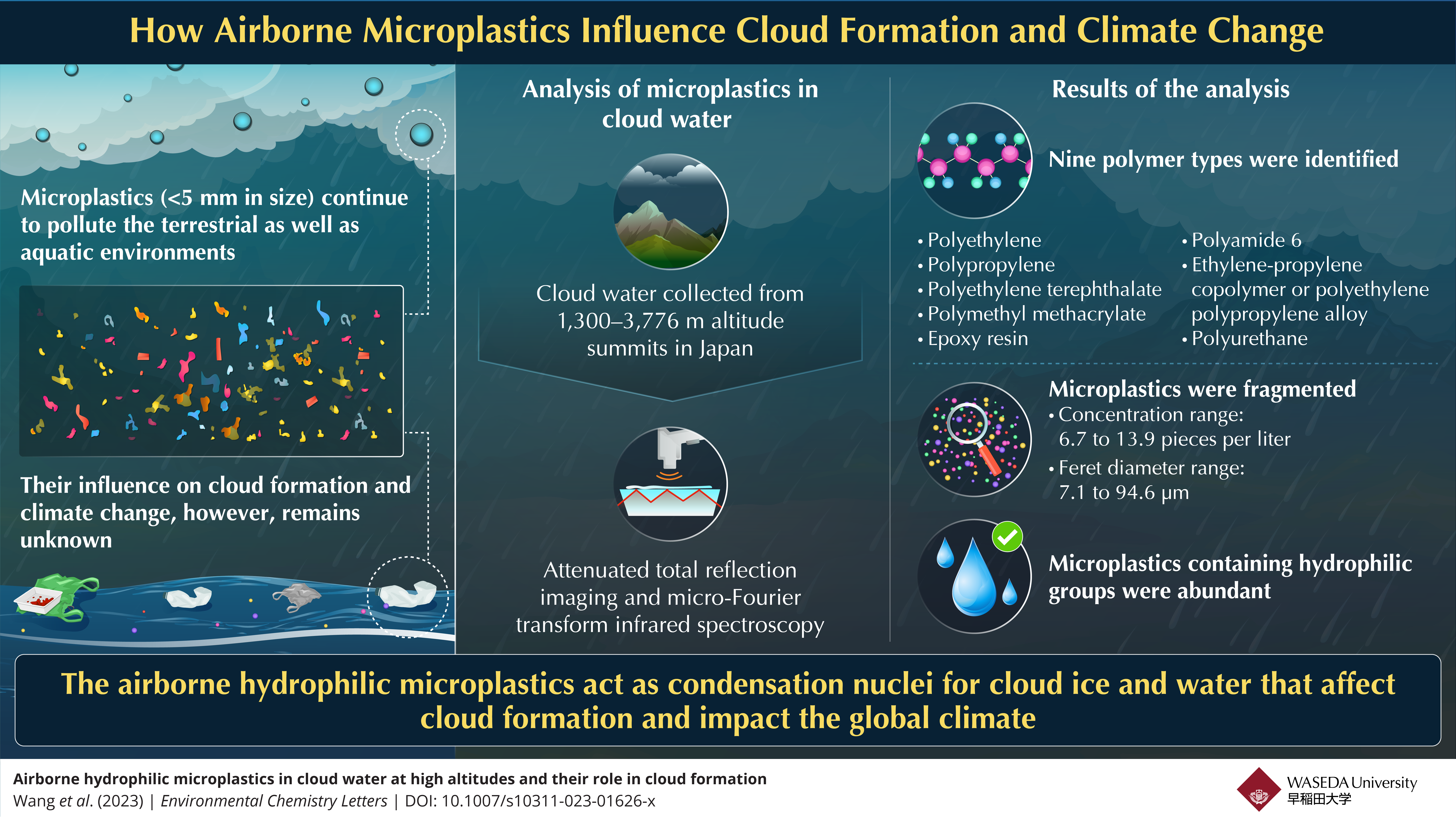Clouds now contain plastic, risking contamination of ‘everything we eat and drink’
Airborne plastic particles found in cloud water
Your support helps us to tell the story
From reproductive rights to climate change to Big Tech, The Independent is on the ground when the story is developing. Whether it's investigating the financials of Elon Musk's pro-Trump PAC or producing our latest documentary, 'The A Word', which shines a light on the American women fighting for reproductive rights, we know how important it is to parse out the facts from the messaging.
At such a critical moment in US history, we need reporters on the ground. Your donation allows us to keep sending journalists to speak to both sides of the story.
The Independent is trusted by Americans across the entire political spectrum. And unlike many other quality news outlets, we choose not to lock Americans out of our reporting and analysis with paywalls. We believe quality journalism should be available to everyone, paid for by those who can afford it.
Your support makes all the difference.Clouds now contain microscopic pieces of plastic that in turn are causing “plastic rainfall”, according to a new study.
Scientists fear that these particles of less than 5mm - known as microplastics - could be contaminating “nearly everything we eat and drink”.
Microplastics are the result of the glut of plastic pollution that is choking our lands and oceans. Plastic waste breaks down into smaller and smaller pieces over time and is finding its way into the atmosphere, human bodies and species.
Previous research has linked these particles to diseases and conditions including cancer, infertility and hormone disruptions.
The new research, from Waseda University in Japan, assessed for the first time how microplastics affect cloud formation and the potential impact on the climate crisis and human health.
The researchers said they believed they were the first to detect airborne microplastics in cloud water.
“If the issue of ‘plastic air pollution’ is not addressed proactively, climate change and ecological risks may become a reality, causing irreversible and serious environmental damage in the future,” co-author Hiroshi Okochi said.
In the study, researchers analysed cloud water collected from the summit of Mount Fuji, the southeastern foothills of Mt Fuji (Tarobo), and the summit of Mt Oyama in Japan, at altitudes ranging between 1,300-3,776m.
Scientists used advanced imaging techniques to determine the presence of airborne microplastics (AMP) in the cloud water and examined their physical and chemical properties.

The team found nine different types of polymers and one type of rubber in these airborne particles.
The researchers said that analysis suggested that airborne microplastics in the cloud water originated primarily from the ocean.
“This implies that microplastics may have become an essential component of clouds, contaminating nearly everything we eat and drink via ‘plastic rainfall’,” the scientists explained.
The accumulation of microplastics in the atmosphere, especially at the poles, could also significantly alter the ecological balance of the planet and lead to “severe loss of biodiversity”, they warned.
“[Airborne microplastics] are degraded much faster in the upper atmosphere than on the ground due to strong ultraviolet radiation, and this degradation releases greenhouse gases and contributes to global warming,” Dr Okochi said.
“As a result, the findings of this study can be used to account for the effects of [microplastics] in future global warming projections,” he said.



Join our commenting forum
Join thought-provoking conversations, follow other Independent readers and see their replies
Comments